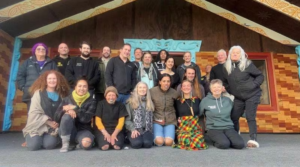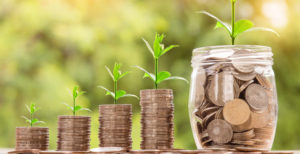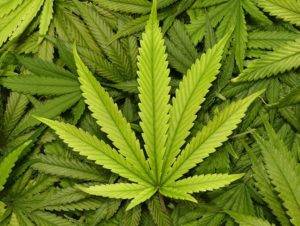From reuters.com link to article by Sarah Shearman, April 24th 2019
LONDON (Thomson Reuters Foundation) – Having witnessed the fallout from drug and alcohol abuse in his struggling Maori community, Manu Caddie was always “quite anti-cannabis”. But now the youth worker-turned-entrepreneur believes the plant will bring prosperity to indigenous New Zealanders.
A global upshot in cannabis legalization has led to a “green rush” by investors into the fast-growing industry, worth some $12 billion in 2018 – equal to The Bahamas’ annual economic output – data from Euromonitor International shows.
A crop of social entrepreneurs also believe there is room for businesses to do good, as well as profit, from the plant.
“Our community has a history of cannabis overuse probably and people relying on it, and it has caused all sort sorts of issues with prohibition and people going to jail,” Caddie told the Thomson Reuters Foundation by phone from New Zealand.
“The dream is we could have some sort of ethical cannabis company that looks after the workers and looks after the environment,” said Caddie, whose Hikurangi Cannabis start-up won New Zealand’s first medicinal cannabis license last year.
As Canada, Uruguay and almost a dozen U.S. states have legalized cannabis for both medicinal and recreational use, tobacco, alcohol and pharmaceutical companies are moving into the market with weed-infused drinks, foods and medicines.
With New Zealand due to vote next year on legalizing recreational cannabis, growth is set to continue. Research company Euromonitor International predicts the industry’s value will rocket by almost 1300 percent to $166 billion by 2025.
BEST WEED
Caddie lives in Ruatoria, a remote town in eastern New Zealand where 94 percent of people are Maori that has one of the country’s highest unemployment rates, according to 2013 government census data.
Its green rolling hills earned an unofficial reputation for growing New Zealand’s best weed after a Rastafarian community settled there in the 1960s.
Caddie and his business partner Panapa Ehau, spotted an opportunity in 2017 to tap into this local expertise and grow legal cannabis, offering locals the chance to buy shares in Hikurangi Cannabis through a crowdfunding campaign.
“We tried to emphasize to people how risky it was,” said Caddie, “because there are no guarantees, but those people who put money in were prepared to do so and it was quite humbling.”
Several locals dipped into their savings and pensions to buy a stake, with about NZ$2.4 million ($1.59 million) raised in total to back the company, which has yet to make a profit.
While health impact of legalization is fiercely debated around the world, Caddie is optimistic that it could create jobs and money and keep some people out of prison, while the risk of addiction to medical products like lozenges and balms is low.
Although Maori only make up 15 percent of New Zealand’s population, more than 50 percent of prisoners are Maori, according to the Department of Corrections, which runs prisons.
Half of Hikurangi Cannabis’ 25 staff are Maori, including four Maori growers. The company – now valued at NZ$30 million after receiving further investment – is training more, with the aim of having 100 staff by the end of next year, Caddie said.
“If there is a way to grow the plant they love and do it legally, they are super keen on that,” he said.
OPPORTUNITY
In the United States, black and Latino communities that have been criminalized for decades for illegally selling weed are also keen to benefit from the marijuana boom.
The Food and Drug Administration is holding a public hearing about the sale of cannabis after the December legalization of the commercial production of hemp – a type of cannabis plant with no or little THC, the ingredient which makes users “high”.
It is unclear whether the entire plant will be legalized at federal level but several states may fully legalize marijuana this year.
Marginalized minorities risk being shut out from the emerging industry due to a ban on licensing people with criminal records to grow or distribute the crop, as well as high startup costs and regulations on the type of property to be used.
“People that were once convicted for crimes that are no longer considered crimes need to have a platform to get involved in cannabis,” said Jessica Steinberg, managing director of the Global C, a consultancy firm for cannabis businesses.
Eight in 10 people who launched a cannabis business or have an ownership stake in a marijuana company are white, according to a survey by Marijuana Business Daily, a U.S. news site.
Only six out of 10 Americans are white, census data shows.
“There is this opportunity to create and shape an industry the way it should be – with balance and equity – but that is not necessarily the reality,” said Steinberg.
The People’s Dispensary, a social enterprise that sells cannabis for medical and recreational use in California and Oregon, aims to do just that.
Founded in 2016, the dispensary – which has two stores and aims to open five more by 2020 – helps poor locals and ex-convicts who might struggle to access capital, start cannabis businesses with loans and grants.
Customers can also invest between $1,000 and $50,000 at their local dispensary in return for equity, and 10 percent of profits go into community initiatives, such as cookery classes and donations to homeless people.
“There is no way we could make all of this money and not give back to our communities … which have been overly policed, overly incarcerated, because of prohibition,” said Christine De La Rosa, chief executive of The People’s Dispensary.
But opening up the legal cannabis industry to marginalized communities is not just about doing good – it also makes good business sense, said De La Rosa, who used cannabis to treat her lupus, an autoimmune disease which almost killed her.
“People on lower incomes spend more on cannabis … If you don’t pay attention to people of color, the formerly incarcerated and women, you are going to lose,” said De La Rosa.
“Because I’m a person of color, I’m part of that underserved community, and I know that underserved community would rather come to me.”


















Comments are closed.